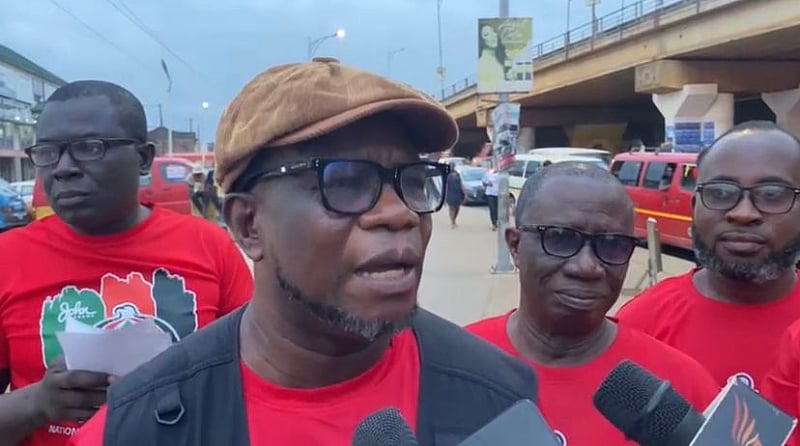University of Ghana (UG) lecturers advocating for the National Democratic Congress (NDC) have criticized President Nana Akufo-Addo’s administration for its insufficient response to rampant illegal mining, known locally as galamsey. On October 8, 2023, these lecturers took to the streets in Atomic, rallying support for NDC presidential candidate John Dramani Mahama ahead of the 2024 elections. Prof. Michael Kpessa-Whyte, a prominent figure among the lecturers, articulated that their political mobilization is motivated by a desire to pressure the government to take action against galamsey activities, which they view as a significant threat to the nation’s future.
Kpessa-Whyte expressed grave concerns regarding the unchecked galamsey crisis, framing it as a burden on future generations. He nostalgically referenced the leadership of Ghana’s first president, Kwame Nkrumah, urging that his legacy of national pride and development needs to be preserved and improved upon. He emphasized the moral responsibility of Ghanaians to ensure a better environment for their descendants. The professor criticized the current government, arguing that academic engagement should extend beyond the classroom to include active participation in societal issues, particularly when the nation is experiencing widespread economic hardships.
In remarks aimed at galvanizing public support, Kpessa-Whyte urged the electorate to unite in their dissatisfaction with the ruling New Patriotic Party (NPP) and vote them out of power during the upcoming elections. He stressed that their plight is shared by many citizens, who face economic challenges exacerbated by the ruling government’s policies. He encouraged Ghanaians to join forces with educators and other stakeholders to advocate for a government that has previously shown a commitment to national development and economic growth, indicating that a change in leadership is essential for the country’s progress.
Prof. Nana Ama Brown Klutse, another lecturer in the NDC campaign group, echoed these sentiments by emphasizing the urgent need for concrete measures against illegal mining practices. Klutse argued for a temporary ban on galamsey to protect essential natural resources like forest reserves and water bodies. She expressed the hope that such a ban would allow for a constructive dialogue about sustainable mining practices that balance economic activity with environmental conservation. Klutse underscored the president’s control over the situation and her expectation that he should take decisive action, especially with the upcoming elections serving as a potential referendum on his leadership.
As the group continues its campaign, the University of Ghana lecturers have announced their intention to engage the public through similar advocacy efforts leading up to the December elections. They view these activities not just as a means of encouraging support for Mahama but also as an opportunity to reshape the national dialogue regarding galamsey and environmental protection. By stepping outside of academic confines, they hope to mobilize widespread public concern and action against the issues they believe are compromising the country’s future.
In conclusion, the efforts of the University of Ghana lecturers highlight a growing frustration with the government’s inaction on illegal mining and a call for a collective response from citizens. Their campaign is characterized by a blend of educational outreach, political mobilization, and a principled stance on environmental issues. As Ghana approaches the pivotal 2024 elections, the intersection of academic advocacy and political activism may play a critical role in shaping the country’s approach to galamsey and broader governance challenges, reflecting the belief that learned voices can influence policy and contribute to societal well-being.














